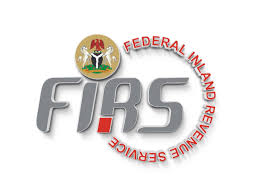The Federal Inland Revenue Service (FIRS) has allayed concerns among manufacturers regarding the security of sensitive business data under the newly introduced electronic invoicing (e-invoicing) initiative.
Speaking at a stakeholder engagement session with key players in the manufacturing sector in Lagos, Acting Director of Tax Automation at FIRS, Mike Adoga, emphasized the agency’s commitment to ensuring data confidentiality and compliance with the Nigeria Data Protection Act (NDPA).
I want you to rest assured that we are guided by the Nigerian Data Protection Act and that all data shared for tax purposes remains confidential, Adoga declared, addressing concerns about potential vulnerabilities in the digital invoicing system.
He underscored that robust measures have been instituted to safeguard all data exchanged within the e-invoicing ecosystem, aiming to build trust among businesses transitioning to the new platform.
The e-invoicing initiative, designed to streamline tax compliance and enhance transparency in Nigeria’s fiscal system, is a federal government project rather than an FIRS-exclusive endeavor. Adoga clarified that the initiative is overseen by a multi-agency steering committee, with key players including the Central Bank of Nigeria (CBN), the Nigerian Information Technology Development Agency (NITDA), and the Ministry of Finance, among others.
This is not an FIRS initiative. It is an initiative of the federal government of Nigeria, and all these agencies are involved,” he stated, highlighting the collaborative nature of the project.
Adoga noted that NITDA, as the primary regulator of Nigeria’s technology space, plays a pivotal role in setting technical and regulatory standards for the initiative. Entities seeking to become access point providers—intermediaries facilitating e-invoicing services—must meet stringent criteria, including compliance with the NDPA and relevant ISO certifications for data protection.
Data, as far as we are concerned, is safe within the ecosystem because we have laid out requirements that ensure compliance with necessary regulations, Adoga assured stakeholders.
The stakeholder engagement session, held in Lagos, Nigeria’s commercial hub, was attended by representatives from the manufacturing sector, a critical segment of the economy that has expressed concerns about the operational and security implications of adopting e-invoicing.
The initiative is part of a broader push by the federal government to modernize Nigeria’s tax administration, reduce revenue leakages, and align with global best practices in digital taxation.
Industry leaders welcomed the assurances but called for ongoing dialogue to address practical challenges in implementation, such as system integration and training for smaller manufacturers.
The FIRS has pledged to continue engaging stakeholders to ensure a smooth rollout of the e-invoicing system, which is expected to enhance efficiency while maintaining the highest standards of data security.
WHAT YOU SHOULD KNOW
The e-invoicing initiative in Nigeria is a federal government project aimed at modernizing tax administration by implementing electronic invoicing for businesses, particularly in the manufacturing sector. Coordinated by a multi-agency steering committee, including the Federal Inland Revenue Service (FIRS), the Nigerian Information Technology Development Agency (NITDA), the Central Bank of Nigeria (CBN), and the Ministry of Finance, the initiative seeks to streamline tax compliance, enhance transparency, and reduce revenue leakages.
The e-invoicing initiative involves the use of digital platforms to generate, transmit, and process invoices, ensuring efficiency and alignment with global digital taxation standards.


















